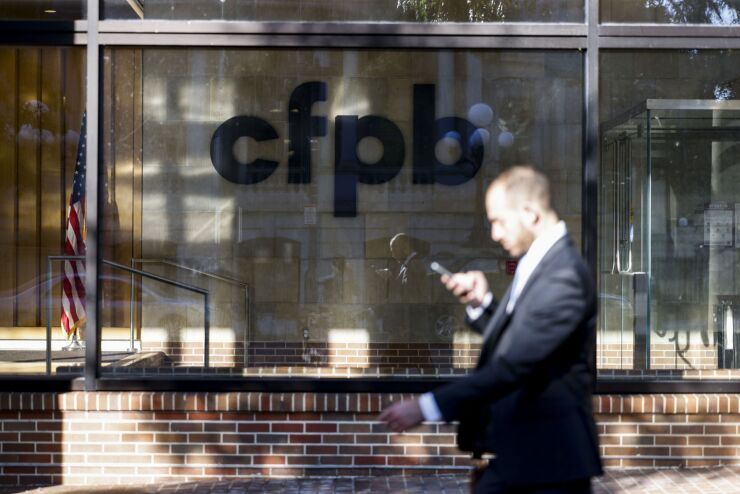
The Consumer Financial Protection Bureau under Director Rohit Chopra has been one of the most active agencies in rooting out unlawful discrimination. Last year, the CFPB referred 18 matters to the Department of Justice and initiated 28 fair lending examinations or targeted reviews, setting records for the agency.
On Wednesday, the CFPB released its annual
The sheer number of fair lending enforcement actions and DOJ referrals stands in stark contrast to previous years. In 2022, the bureau issued four fair lending actions alleging violations of the Equal Credit Opportunity Act and referred two matters involving allegations of discrimination to the DOJ. In 2020, under former acting CFPB Director Dave Uejio, the agency filed one lawsuit and issued four Justice Department referrals. The office issued
"The CFPB used every tool at our disposal to carry out our fair lending work, from enforcement and supervision to guidance and rulemaking, including close coordination with our state and federal partners," Patrice Alexander Ficklin, the CFPB's fair lending director,
Among enforcement actions, the CFPB in December teamed up with the Justice Department to sue Colony Ridge, a Texas-based developer, for discriminatorily targeting Latinos with inferior mortgage products. The lawsuit alleges that Colony Ridge sells unsuspecting families flood-prone land without water, sewer or electrical infrastructure. The company originated loans that borrowers could not afford and then foreclosed on at least 30% of the seller-financed lots, the CFPB alleges.
In November,
The bureau also took action against
The CFPB said it focused much of its fair lending supervision efforts on redlining, property valuation bias and HMDA compliance, as well as credit card marketing and the use of alternative data in digital marketing. It also has looked at the use of automated systems and models, sometimes marketed as artificial intelligence and machine learning models, in credit card originations.
Last year, the CFPB issued a circular on so-called adverse action notices. Under the Equal Credit Opportunity Act, a landmark 1974 anti-discrimination statute, a creditor must provide an applicant with a reason for denying, revoking or changing the terms of an existing extension of credit. The explanation is known as an adverse action notice.
Chopra also has
"The CFPB has made clear that the same laws and regulations apply to all technologies, regardless of the complexity or novelty of the technology deployed by institutions, including when it comes to combating unlawful discrimination or explaining how certain credit decisions are made," the bureau





